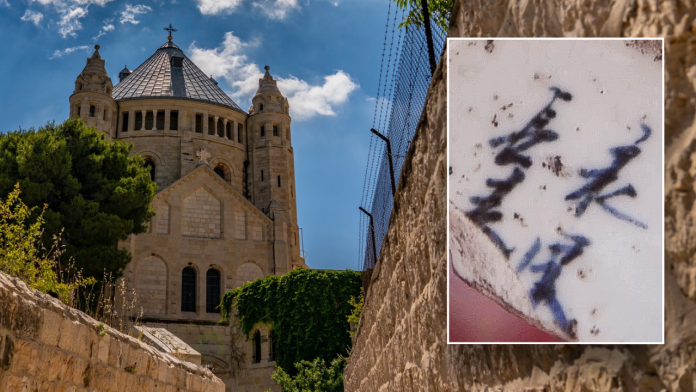The oldest-known Chinese inscription was recently discovered at the holy site of Mount Zion by archaeologists, as reported by the Israeli Antiquities Authority (IAA).
The inscription, found on a porcelain bowl, was uncovered during a collaborative excavation between the IAA and the Protestant Institute of Archaeology. This artifact signifies the historical connection between the Land of Israel and China, according to a recent press release by the agency.
The IAA states that the porcelain bowl dates back to the 16th century and bears the inscription “Forever we will guard the eternal spring.” It was initially noticed protruding from the soil by an excavator.
“This past summer, while preparing for the upcoming excavation season, archaeologist Michael Chernin from the Israel Antiquities Authority unexpectedly saw a colorful object sticking out from the cleared dirt at the site,” the IAA’s post explains. “Upon further examination, Michael found an inscription on the bottom of the object after washing it.”
US-EGYPTIAN ARCHAEOLOGICAL TEAM UNCOVERS 4,000-YEAR-OLD TOMB NEAR LUXOR WITH JEWELRY, OTHER ARTIFACTS
The oldest-known Chinese inscription discovered in Israel was found at Mount Zion. (Israel Antiquities Authority via Facebook)
The IAA revealed that many of the excavation’s discoveries range from the Second Temple period to the Byzantine era, but the porcelain bowl’s “unexpected origin” stands out.
This bowl, possibly made during the Ming Dynasty between 1520 and 1570, symbolizes the trade relationship between Imperial China and the Ottoman Empire. It is the first Chinese-inscribed bowl found in Israel, although other ancient Chinese pottery has been discovered.
FLORIDA PROFESSOR FINDS EVIDENCE THAT ANCIENT EGYPTIANS DRANK HALLUCINOGENIC COCKTAILS




